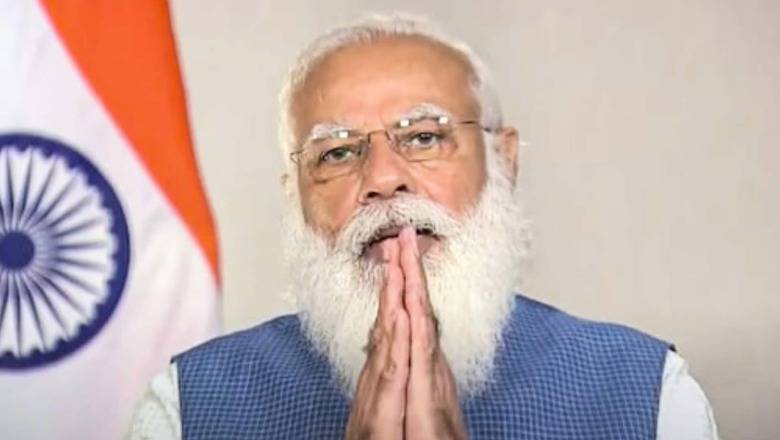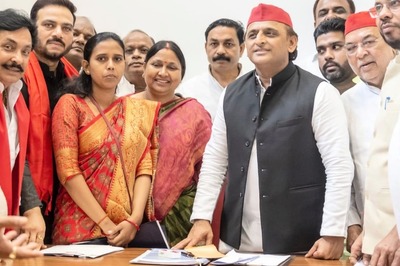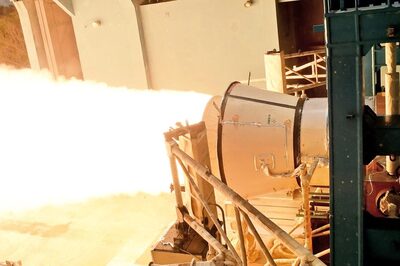
views
Prime Minister Narendra Modi in his address to a virtual high-level United Nations’ dialogue on desertification, land degradation and drought, highlighted various novel methods India has undertaken to combat the issue.
Modi is the president of the 14th session of the Conference of the Parties to the United Nations Convention to Combat Desertification (UNCCD).
“Land is the fundamental building block for supporting all lives and livelihoods and all of us understand that the web of life functions as an inter-connected system. Sadly, land degradation affects over two-third of the world today,” he said.
He said that if left unchecked, land degradation would erode the very foundations of our societies, economies, food security, health, safety and quality of life, and called for reducing the “tremendous pressure” on land and its resources. “Clearly, a lot of work lies ahead of us. But we can do it. We can do it together,” the PM said.
The PM highlighted various measures India has adopted to combat the problem. “In India, we have always given importance to land and consider the sacred earth as our Mother. India has taken the lead to highlight land degradation issues at international forums. The “Delhi Declaration” of 2019 called for better access and stewardship over land and emphasize gender-sensitive transformative projects. In India, over the last ten years, around three million hectares of forest cover had been added,” he said.
“This has enhanced the combined forest cover to almost one-fourth of the country’s total area. We are on track to achieve our national commitment of land degradation neutrality. We are also working towards restoring twenty six million hectares of degraded land by 2030. This would contribute to India’s commitment to achieve an additional carbon sink of 2.5 to 3 billion tons of Carbon-di-oxide equivalent,” Modi said.
The PM said India believed that the restoration of land could start a cycle for good soil health, increased land productivity, food security and improved livelihoods.
“In many parts of India, we have taken up some novel approaches. To give just one example – the Banni region in the Rann of Kutch in Gujarat suffers from highly degraded land and receives very little rain. In that region, land restoration is done by developing grasslands which helps in achieving land degradation neutrality. It also supports pastoral activities and livelihood by promoting animal husbandry. In the same spirit, we need to devise effective strategies for land restoration, while promoting indigenous techniques,” he said.
The Prime Minister said land degradation posed a special challenge to the developing world. “In the spirit of South-South Cooperation, India is assisting fellow developing countries to develop land restoration strategies. A Centre of Excellence is being set up in India to promote a scientific approach towards land degradation issues,” he said.
Modi said it was mankind’s collective responsibility to reverse the damage to land caused by human activity, and our sacred duty to leave a health planet for our future generations.
Read all the Latest News, Breaking News and Coronavirus News here.




















Comments
0 comment